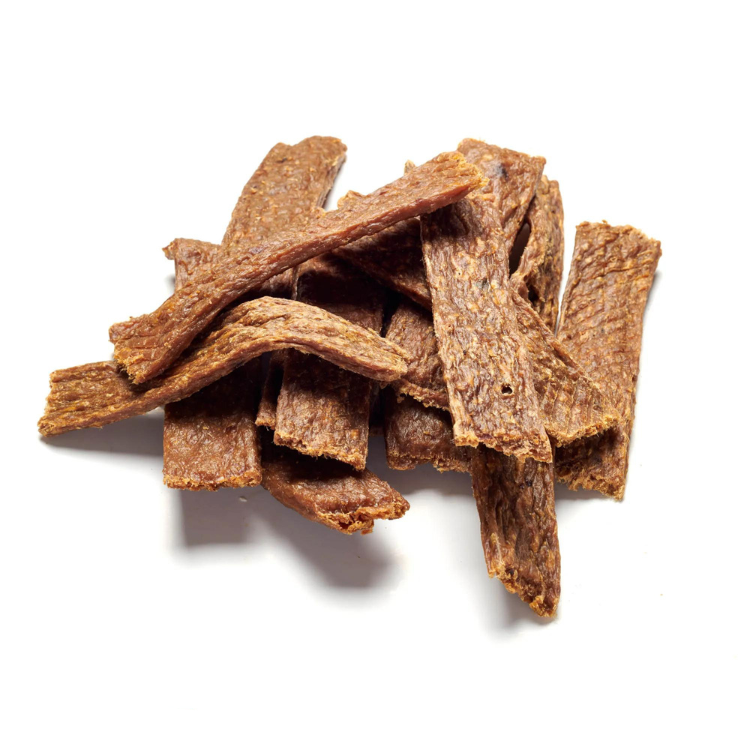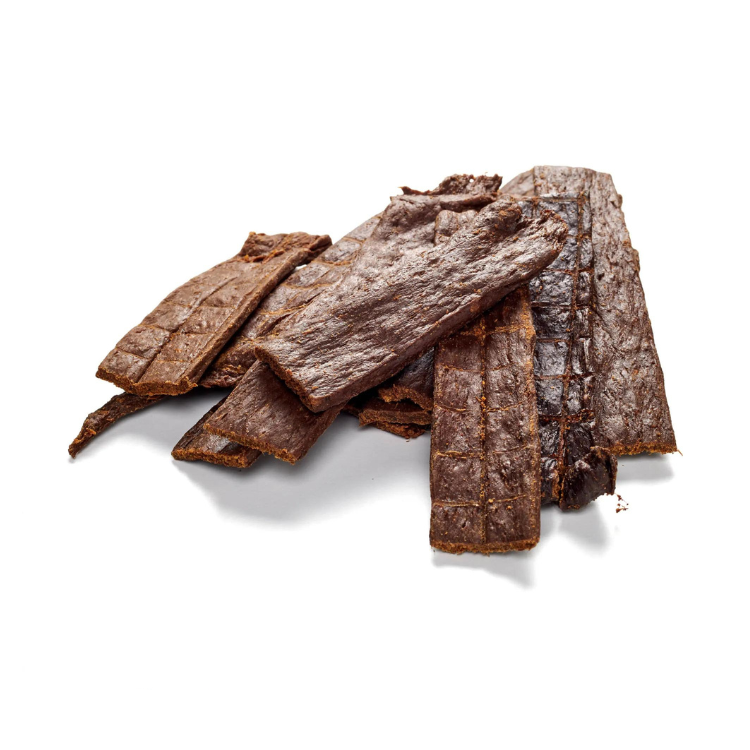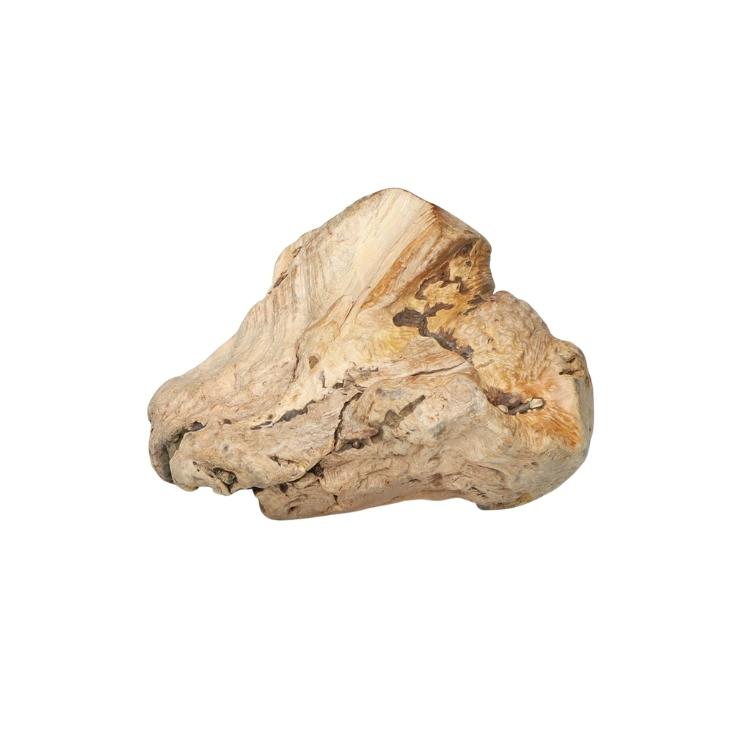
Why do dogs eat poop?
Share
For dog experts, it is nothing new that our four-legged friends occasionally eat the feces of other dogs, their own or even that of other animals. This behavior is called coprophagia and although it does occur occasionally, it is not always a natural behavior in dogs. There can be many reasons why your dog eats feces.
Content: Why do dogs eat poop
- Is coprophagia a natural behavior?
- What are the causes of coprophagia
- What can you do about coprophagia?
- Conclusion
Pamper your dog with our chew products!
Is coprophagia a natural behavior?
First, a little excursion. Coprophagy (from the Greek κόπρος kópros 'dung', 'dung', 'feces' and φαγεῖν phageín 'eat') is known in the animal groups of mites, nematodes and some scarab beetles. But rabbits , hares and other rodents such as chinchillas and guinea pigs or great apes such as gorillas also eat their own feces. It is assumed that the animals are simply not able to use their food sufficiently during the first digestion and therefore do not absorb enough vitamins and nutrients. These can be used by eating it again.
Whether coprophagia is a natural behavior in dogs is controversial. It is known that bitches that have given birth eat the feces of their puppies . This is probably to destroy the "scent" of the puppies from predators and thus protect them. Puppies themselves probably eat feces to build up their intestinal flora. At first glance, it seems harmless and natural, but this is not always the case.
Your dog deserves the best – try these treats!
What are the causes of coprophagia
Disease & Parasites
It can also be due to a pancreatic disease (pancreatic insufficiency) when dogs eat feces. The pancreas produces too few digestive enzymes. The consequences are weight loss and nutrient deficiencies, which in turn lead to cravings and if feces are nearby, they will eat them. If you are unsure or just want to be sure, we always recommend that you go to a vet or animal clinic! Parasites such as worms can also lead to problems with nutrient absorption and can therefore be an indirect cause. A worming treatment for dogs can help with this.
Deficiency symptoms
It is believed that nutritional deficiencies caused by poor nutrition lead to dogs eating the feces of other dogs to compensate for the lack of nutrients. For example, sled dogs eat their own feces to balance their energy levels after they have been subjected to strenuous physical exertion.
Bad hygiene
Dogs that live in kennels under poor hygiene conditions simply eat the feces to keep things tidy.
Hunger and overfeeding
Both too little and too much food can be harmful for dogs. Hunger can actually be enough to make dogs eat feces in an emergency. But too much food can also, as paradoxical as it may sound, lead to coprophagia in dogs. Digestion in the large intestine is disrupted by too many bacteria, which means that undigested parts of the food remain in the feces. This feces is then of interest to other dogs.
Wrong education
While puppies eat feces as part of building up their intestinal flora, young dogs may eat feces out of pure curiosity. This is just part of growing up, but should be discouraged over time, as it also carries a high risk of infection.
Strong territorial behavior can also be a reason why dogs eat feces.
Basically, every dog owner should pay attention to what their dog eats. This is especially true when it comes to dog excrement. Even if it may be natural to a small extent, it is still not without health risks. The excrement of other dogs can contain parasites such as worms, drug residues or dangerous foreign bodies. Toxic substances contained in the excrement can lead to poisoning in dogs and can transmit diseases. The excrement of other animal species is also occasionally eaten. Rabbit excrement only causes diarrhea in dogs, but horse manure from recently dewormed horses can be life-threatening for dogs with MDR1 genetic defects, such as collies and border collies.
What can you do about coprophagia?
What can you do to counteract your dog's coprophagia and bad breath? As is often the case in life, it is better to be prepared. Not alone, however, but as a collective. This is also why it is so important that dog owners use dog poop bags and collect all of their dog's droppings, even if it is not the most pleasant thing to do. After all, your dog cannot eat poop if it cannot find any.
If it can be ruled out that your dog is eating feces because of illness or nutritional deficiencies, it may be a learned bad behavior. When dogs eat feces, we usually react angrily and disgusted. The dog, however, has your full attention. To get your attention back, it may eat feces again. Paradoxically, you can counteract this by ignoring your dog's feces eating for a short time, so that it loses interest. Not only does it seem paradoxical, it also seems difficult to implement, because even the first meal of dog feces can be dangerous for your dog. And it shouldn't smell of dog feces, not to mention that dogs also like to lick hands and faces. A clean enclosure or dog bed is a must and should ideally be cleaned at least once a day, because neglected and stressed dogs are more likely to eat feces.
To stop your dog from eating feces in the long term, you have to stop him from eating feces. In the beginning, this can be achieved with a leash and sufficient training. The advanced method is to organize walks in such a way that the dog does not get bored. Finding food and retrieving are exciting tasks that ensure that your dog is focused on you. This way, he will not be tempted to eat feces in the first place. Professional dog training certainly can't do any harm.
Conclusion
So it is absolutely nothing unusual for dogs to eat feces. Their own feces are sometimes just as exciting as rabbit droppings or the feces of other dogs. Even if it is a relatively natural behavior, especially in puppies, dogs should definitely not eat feces. Not to mention that you don't want the dog's mouth to constantly stink of feces. And you don't want your feces-eaten furry friend licking your hands or even your face. But it's not just feces. Your dog should never eat anything without your permission. Your four-legged friend needs to be well trained, but the effort is worth it because the dangers are great. Not only feces, but also things that are poisonous to your dog or even razor blades in treats can be life-threatening for your dog.
Tasty & nutritious – perfect for your furry friend!









